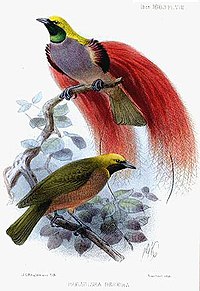
How does a self-incompatible individual transition to self-compatibility during its lifetime?
Sign Up to like & getrecommendations! Published in 2023 at "American journal of botany"
DOI: 10.1002/ajb2.16150
Abstract: The transition from self-incompatibility (SI) to self-compatibility (SC) has been argued to be one of the most common and influential evolutionary changes in flowering plants (Igic et al. 2008). This article is protected by copyright.… read more here.
Keywords: self incompatible; transition self; self compatibility; incompatible individual ... See more keywords

LC–MS based metabolic fingerprinting of apricot pistils after self-compatible and self-incompatible pollinations
Sign Up to like & getrecommendations! Published in 2020 at "Plant Molecular Biology"
DOI: 10.1007/s11103-020-01098-5
Abstract: Key message LC-MS based metabolomics approach revealed that putative metabolites other than flavonoids may significantly contribute to the sexual compatibility reactions in Prunus armeniaca. Possible mechanisms on related microtubule-stabilizing effects are provided. Abstract Identification of… read more here.
Keywords: compatible self; apricot pistils; self; self incompatible ... See more keywords

Frequency of flower visitors and achene production increase with rising population size in the self-incompatible herb Centaurea scabiosa (Asteraceae)
Sign Up to like & getrecommendations! Published in 2021 at "Plant Ecology"
DOI: 10.1007/s11258-021-01129-1
Abstract: Self-incompatible, non-clonal plant species are especially dependent on the activity of flower visitors for seed production. Therefore, populations of these plants are vulnerable to a reduced flower visitation rates, but also to increased isolation by… read more here.
Keywords: self incompatible; production; achene production; flower visitors ... See more keywords

Autophagy is required for self-incompatible pollen rejection in two transgenic Arabidopsis thaliana accessions.
Sign Up to like & getrecommendations! Published in 2022 at "Plant physiology"
DOI: 10.1093/plphys/kiac026
Abstract: Successful reproduction in the Brassicaceae is mediated by a complex series of interactions between the pollen and the pistil, and some species have an additional layer of regulation with the self-incompatibility trait. While the initial… read more here.
Keywords: thaliana; self incompatible; pollen rejection; self incompatibility ... See more keywords

Simultaneous gene editing of three homoeoalleles in self-incompatible allohexaploid grasses.
Sign Up to like & getrecommendations! Published in 2021 at "Journal of integrative plant biology"
DOI: 10.1111/jipb.13101
Abstract: CRISPR/Cas system has been widely used for precise gene editing in plants. However, simultaneous gene editing of multiple homoeoalleles remains challenging, especially in self-incompatible polyploid plants. Here, we simultaneously introduced targeted mutations in all three… read more here.
Keywords: gene editing; simultaneous gene; incompatible allohexaploid; self incompatible ... See more keywords

Levels of Intra-specific AFLP Diversity in Tuber-Bearing Potato Species with Different Breeding Systems and Ploidy Levels
Sign Up to like & getrecommendations! Published in 2017 at "Frontiers in Genetics"
DOI: 10.3389/fgene.2017.00119
Abstract: DNA-based marker analysis of plant genebank material has become a useful tool in the evaluation of levels of genetic diversity and for the informed use and maintenance of germplasm. In this study, we quantify levels… read more here.
Keywords: diversity; potato species; ploidy; self incompatible ... See more keywords

Stigmatic Transcriptome Analysis of Self-Incompatible and Compatible Pollination in Corylus heterophylla Fisch. × Corylus avellana L.
Sign Up to like & getrecommendations! Published in 2022 at "Frontiers in Plant Science"
DOI: 10.3389/fpls.2022.800768
Abstract: Self-incompatibility (SI) protects plants from inbreeding depression due to self-pollination and promotes the outcrossing process to maintain a high degree of heterozygosity during evolution. Corylus is an important woody oil and nut species that shows… read more here.
Keywords: pollination; corylus; self incompatible; analysis ... See more keywords

The influence of self-pollen deposition on female reproductive success in a self-incompatible plant, Akebia quinata
Sign Up to like & getrecommendations! Published in 2022 at "Frontiers in Plant Science"
DOI: 10.3389/fpls.2022.935217
Abstract: Geitonogamy is inevitable in hermaphrodite and monecious. Even for self-incompatible species, the negative effects of self-pollen are unavoidable when geitonogamous or self-mating occurs. However, the influence of self-pollen on consecutive development of flowers (e.g., fruiting… read more here.
Keywords: self incompatible; self pollen; pollen; influence self ... See more keywords

Is the High Proportion of Males in a Population of the Self-Incompatible Fraxinus platypoda (Oleaceae) Indicative of True Androdioecy or Cryptic-Dioecy?
Sign Up to like & getrecommendations! Published in 2022 at "Plants"
DOI: 10.3390/plants11060753
Abstract: Androdioecy is a rare reproductive system. Fraxinus platypoda, a woody canopy species in Japan’s mountainous riparian zones, is described as a morphologically androdioecious species. In this study, we tried to detect whether F. platypoda is… read more here.
Keywords: male; pollination; indicative true; self incompatible ... See more keywords